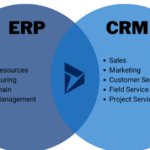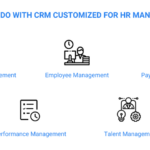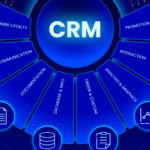A CRM Database Helps Manage Client Communication and Projects
We are all bombarded on a daily basis with new task management software and it can get overwhelming deciding if something like a CRM approach would really help your business. Let’s simplify what a CRM does to help companies function and grow.

A CRM definition often helps with being able to see the potential of the system.
What does CRM stand for? CRM stands for “customer relationship management.” A CRM definition can be understood in two different ways.
The first CRM definition is: “A management philosophy according to which a company’s goals can be best achieved through identification and satisfaction of the customers’ stated and unstated needs and wants.”
Customer feedback is only one way to learn about what a customer really wants out of a business in your industry. Not all customers who are interested in your products or services are willing, out of politeness or lack of time, to fill out a satisfaction survey or write a review. With a CRM database capturing their purchasing behavior, you gather more information about what they really want. In this sense, the philosophy of monitoring customer behavior with your company directly impacts a company’s ability to maintain loyal customers, predict potential customer needs, and grow as a business.
The second CRM definition others use is: “A computerized system for identifying, targeting, acquiring, and retaining the best mix of customers.”
Where the first CRM definition speaks to the mindset of a company when seeking to grow, the second CRM definition talks about the literal method which transforms the philosophy into action. A CRM database operates within software applications to run automated reports and streamline day-to-day operations which directly impact your customers’ satisfaction.
How can you benefit from using a CRM database?
A CRM database does the work of gathering all the information a company needs to thrive. Your relationship with your customers is how you stay in business – if they’re happy with what you do, they tell their friends and family about your company and you receive less costly advertising as well as long-term customers who will continue to bring you business over time.
A CRM database is designed to help every aspect of your business function with greater efficiency. This may not seem immediately relatable to customer service, but, from the executive decisions down to the supply management trail, every bump in the road affects your customers.
Think of it this way: if you are spending money on a low-performing employee or an unpopular product collecting dust on the shelf, what would it take to even learn this is the case? With everything managers need to do to keep operations running smoothly, it may take months of lost revenue to discover these corners which should be cut. A CRM database will capture the lifespan of items in inventory and automatically run reports on items in stock without an administrative member of the team taking the time and resources to run the report and then submit it to you. This makes it easier to place more focus on items of interest and avoiding running out of your customer’s favorite products with space freed up on the shelf.
Increase profits with a CRM approach.
When your business is better set up to meet your customers’ needs and stop wasting money on items or processes which detract from this goal, profits increase. A CRM approach to your daily operations makes it clear to your customers they matter and are the soul of what your company does. Most customers switch to competing companies in the same industry if they feel the business, essentially, doesn’t care about them or the problems they came to the company to fix.
A well-run business with a CRM approach makes it easier to give your customers information in real-time and refined products and services to better serve your community. Waste less money on what is not serving you and your customers with a CRM approach to evaluating where your company needs to improve and where it truly shines with your ideal clients.
To maximize growth, learn about using a CRM tool to streamline processes.
CRM Runner offers several helpful tools within their CRM system packages. Their GPS and time tracking CRM tool demonstrate in real-time where employees are working and how long they worked at a particular site. This information is valuable for identifying top performers and where staff may need extra assistance to complete difficult tasks. This CRM tool also tracks inventory and company vehicles exiting and entering job sites and the headquarters.
Another helpful CRM tool feature provided by CRM Runner is automated sales documentation and transactions. Because CRM Runner is cloud-based, the CRM tools are available on any device with an internet connection. You or your staff will be able to dispense invoices and get paid anytime, anyplace.
CRM tools included with CRM Runner also feature work progress reports and other customizable reporting options. Learn what you need to know about the experience of your staff in the field and your clients interacting with them using daily progress reports you can review with a swipe on your phone while commuting or even after hours.
A CRM database can manage client communication seamlessly.
We improve what we check and a CRM approach to business will show your customers you’re ready to be the best in your industry to support their specific needs. Managing communication with customers means that they don’t have to repeat information and they receive updates when there are delays. Answering customers’ questions and informing them proactively about potential issues can make the difference between bad customer experience and a good one. To get the help of a CRM database for your business sign up for a free trial with CRM Runner, a feature-rich cloud-based solution for businesses.






0 Comments